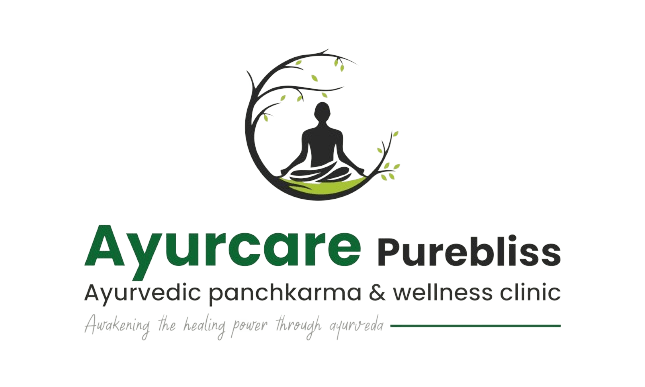PCOD /PCOS Ayurvedic Treatment
Everything in the universe is composed of the five elements: space, air, fire, water and earth.

PCOD/PCOS Problem
Polycystic Ovary Syndrome (PCOS) is a common health condition that affects individuals assigned female at birth, particularly during their reproductive years. This hormonal disorder occurs when the ovaries produce an excess of androgens, which are male hormones, leading to the development of small fluid-filled sacs or cysts in the ovaries. One of the main challenges with PCOS is its impact on the menstrual cycle, causing irregular periods or even the absence of periods. Alongside menstrual irregularities, individuals with PCOS may experience various symptoms, including acne, weight gain, excess hair growth, and difficulty conceiving.
The underlying causes of PCOS are not fully understood, but a combination of genetic and environmental factors is believed to play a role. Lifestyle modifications, such as a healthy diet, regular exercise, and stress management, are often recommended to manage symptoms. Ayurveda, the ancient system of medicine, offers holistic approaches to address PCOS by focusing on balancing the doshas (Vata, Pitta, and Kapha), improving digestion, and supporting overall well-being. Ayurvedic treatments may include dietary recommendations, herbal supplements, and lifestyle adjustments to help manage PCOS symptoms and promote hormonal balance.
Causes of PCOS
PCOS, or Polycystic Ovary Syndrome, stems from a hormonal imbalance, specifically an overabundance of androgens. This hormonal irregularity triggers the development of cysts within the ovaries.
What is the primary cause of PCOS?
PCOS is primarily caused by a hormonal imbalance, marked by elevated levels of androgens, the male hormones, in women. This imbalance disrupts the normal functioning of the ovaries.
Are there genetic factors contributing to PCOS?
Yes, there is a genetic component to PCOS. If a woman has a family history of PCOS, she may have a higher likelihood of developing the condition due to shared genetic factors.
How does lifestyle affect the development of PCOS?
Unhealthy lifestyle choices, such as a sedentary routine and poor dietary habits, can contribute to weight gain and insulin resistance, both of which are associated with the development and exacerbation of PCOS.
How does hormonal imbalance contribute to PCOS?
The excess androgens in the system can disrupt the regular ovulation process, leading to the formation of small fluid-filled sacs or cysts on the ovaries, a characteristic feature of PCOS.
Can insulin resistance be a cause of PCOS?
Insulin resistance, where the body’s cells don’t respond effectively to insulin, is linked to PCOS. This resistance can contribute to increased insulin levels, impacting ovarian function and androgen production.
Is PCOS a common hormonal disorder in women?
Yes, PCOS is one of the most prevalent hormonal disorders among women of reproductive age, affecting their menstrual cycles, fertility, and overall health.
Symptoms Of PCOS
- Irregular Menstrual Cycles:Women with PCOS often experience irregular periods, which may be infrequent, absent, or prolonged. This irregularity is a key symptom indicating hormonal imbalances.
- Ovulatory Dysfunction:PCOS can disrupt the normal ovulation process, leading to difficulties in conceiving. Women with PCOS may face challenges in getting pregnant due to irregular or absent ovulation.
- Excessive Androgen Levels:Elevated levels of androgens, the male hormones, are a common feature of PCOS. This may manifest as acne, excessive facial or body hair growth (hirsutism), and male-pattern baldness.
- Ovarian Cysts:The formation of small fluid-filled sacs or cysts on the ovaries is a characteristic symptom of PCOS. These cysts contribute to the hormonal imbalance and may cause pelvic pain.
- Weight Fluctuations:Many women with PCOS struggle with weight management. The condition is often associated with weight gain, and losing weight can be challenging due to insulin resistance.
- Skin Issues:Skin problems like acne, oily skin, and dark patches on the skin (acanthosis nigricans) are common in individuals with PCOS. These manifestations are linked to hormonal imbalances.
- Fatigue and Low Energy:PCOS can contribute to feelings of fatigue and low energy levels. The hormonal disruptions and challenges associated with the condition may impact overall well-being.
- Mood Changes:Hormonal fluctuations in PCOS can affect mood, leading to mood swings, anxiety, or depression. Emotional well-being is closely tied to the hormonal balance in the body.
- Sleep Disturbances:Some women with PCOS may experience difficulties in maintaining regular sleep patterns. Sleep disturbances can further contribute to fatigue and mood alterations.
- Insulin Resistance:Insulin resistance is often associated with PCOS, contributing to weight gain and making it challenging for the body to regulate blood sugar levels effectively.

Ayurvedic Treatments For PCOS
- Balancing Doshas:Ayurvedic treatments for PCOS focus on restoring balance to the doshas, particularly addressing excess Vata and Kapha. This helps harmonize the hormonal fluctuations causing PCOS symptoms.
- Herbal Remedies:Ayurveda employs various herbs known for their hormonal-regulating properties. Herbs like Shatavari, Ashoka, and Guduchi may be used to support reproductive health and balance hormones.
- Lifestyle Modifications:Ayurvedic treatments emphasize lifestyle adjustments, including dietary changes and regular exercise. These modifications aim to improve digestion, promote weight management, and enhance overall well-being.
- Detoxification (Panchakarma):Panchakarma therapies, such as Vamana (therapeutic vomiting) and Basti (medicated enemas), are used to eliminate toxins and restore balance in the body. These therapies aid in addressing underlying imbalances.
- Yoga and Meditation:Incorporating specific yoga asanas and meditation can be beneficial for managing stress and promoting hormonal balance. Stress reduction plays a crucial role in managing PCOS symptoms.
- Ayurvedic Dietary Guidelines:Ayurveda provides dietary recommendations to pacify aggravated doshas. This may involve incorporating warm, nourishing foods and avoiding foods that aggravate Vata and Kapha.
- Ghee and Healthy Fats:Including ghee and healthy fats in the diet is often suggested to support reproductive health. Ghee, in particular, is believed to have a positive impact on hormonal balance.
Get in Touch
Phone Consultation
Online Consultation
Clinic Consultation
- Care@ayurcarepurebliss.com
- +91- 8329866286
